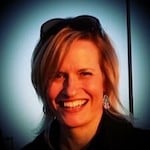We’re pleased to profile these women leaders at MarketSource, each with a unique story and path to leadership. They all were drawn to MarketSource and stay because of the intentionally inclusive culture, and each is actively working to ensure our continued momentum. Through a variety of initiatives, each of them is also working to pave the way for future women leaders and to perpetuate an environment that encourages them to grow and makes even greater space for their contributions. Here are their stories.
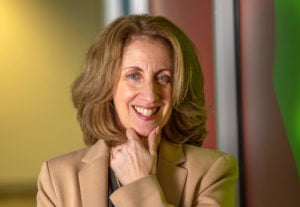
ANDREA BADER
Director, Organizational Development
“I actually don’t see myself as a woman leader, just as a leader. My mentor modelled how to encourage others to be curious and innovative. Ever since, I have focused on breaking the chains of the status quo and encouraging my teams to do the same.”
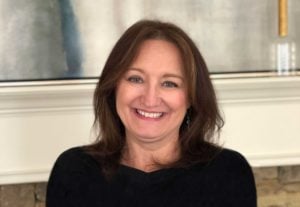
KAREN SALAMONE
Head of Marketing
“Being a woman makes me a more compassionate leader. We don’t lead things—we lead people. And I lead with all parts of who I am, which means I don’t have to fit a mold or lead like anyone else does, man or woman.”
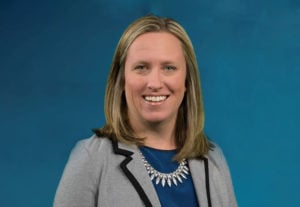
JESSICA SEARS
Director, Financial Operations
“I wouldn’t be where I am without my mentors. They taught me how to how to be a true partner to the business, ask good questions, and find solutions that are both right for the business and practical and doable.”
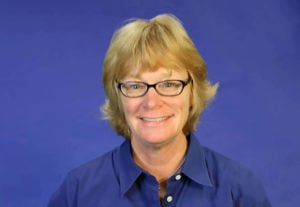
LISA WALSH
Executive Director, Automotive
“I’ve worked in a male-dominated industry for 45 years. It was a definite obstacle early on, but it pushed me to be always on top of my game and makes me a better leader today.”
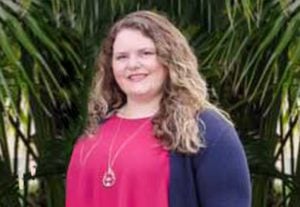
MELISSA WILEY
Director, Employee Support
“I’m a mother, a wife, a daughter, and a leader, but I know those that came before me didn’t always get the opportunities I’ve had. I want to do my part to open doors and break ceilings.”
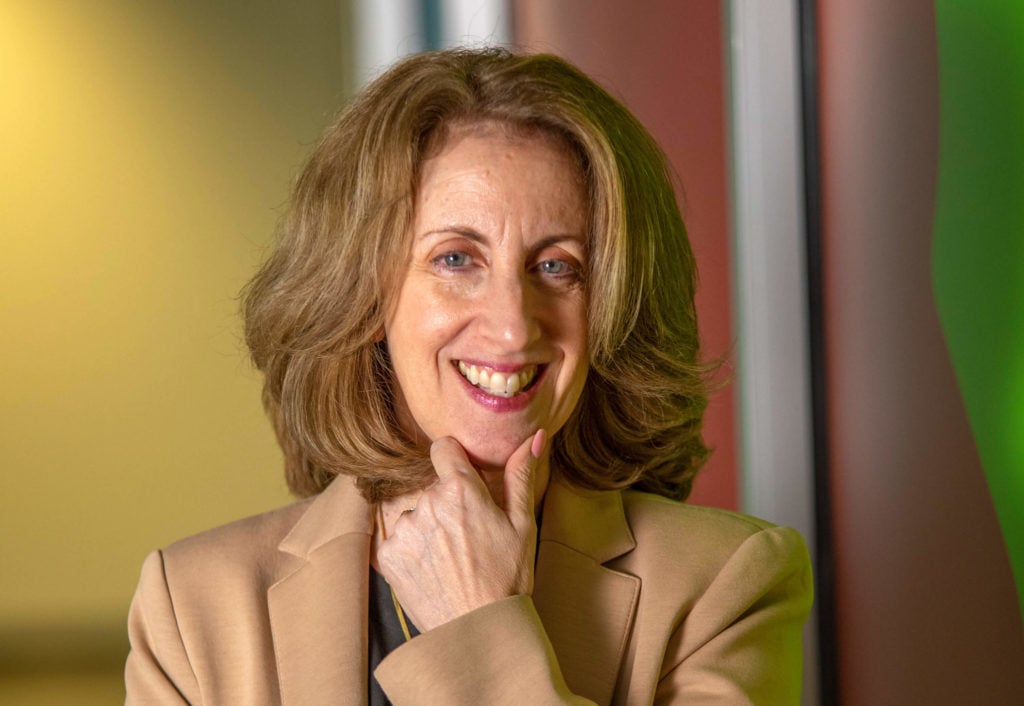
ANDREA’S STORY
I have been in Learning & Development (L&D) my entire 30+ year career and have had the good fortune to make an impact by improving the lives of others. Most of my L&D experience has been in global health, supporting companies such as the CDC, WHO, and UNICEF. The most memorable projects were those in developing countries, where I implemented training curricula that improved the quality of people’s lives. These included how to manage health centers in countries like Cameroon and Uganda, standardizing training for national tuberculosis control programs in Africa and Asia, and training public health officials in countries such as Thailand and Jordan in how to strengthen their non-communicable disease field epidemiology training programs. Meeting people from remote parts of Africa who had very few possessions, but who always had a smile on their faces, made me extremely grateful for what I have.
My instructional design work in global health led to an opportunity to work for a large healthcare company, where I created learning experiences for sales, customer service, and claims processing. This may not have been as glamorous as travelling the world, but it allowed me to stay home more with my two sons. I was still an individual contributor, but I learned more about my craft, particularly about how to integrate gamification and spaced learning into the training programs. After a few years, I transitioned into a leadership role because I knew I could help motivate, engage, coach, and mentor individual contributors to become high performing teams.
At MarketSource, I get to tap into my instructional design skills to help my team design large-scale learning initiatives. But I also get to do what I love, which is to be strategic, improve processes and people’s performance, and to engage my team so that they are happy and enjoy coming to work.
One of the things that attracted me to MarketSource was the array of professional and leadership development training available, especially for women. MarketSource is great about giving women a seat at the table by hiring and promoting women into leadership roles through initiatives such as our Women in Leadership training program, which I lead. The program is designed to help high-performing women move to the next level. We’ve had several graduates who’ve received promotions. It’s critical for our organization to show our women how much we value their personal and professional growth by consistently offering programs like this.
As more opportunities present themselves to women leaders at MarketSource, I would like to see a pipeline of high-potential women leaders who have the skills and abilities to move into executive leadership. I hope to help with this effort through succession planning and a more formal mentorship program, where women mentees can be paired with mentors who share similar experiences, backgrounds, and/or goals.
What advice do you have for women early in their careers?
Don’t be afraid to speak up and contribute, especially when you’re in a room full of men or more senior level leaders who may not give you that chance. Be authentic, and work for a company that shares your values. Don’t compromise what you believe in just to get a seat at the table. As Ruth Bader Ginsberg (RBG) once said, “Women belong in all places where decisions are being made. It shouldn’t be that women are the exception.”
Your greatest wish for the next generation of female leaders?
Fun fact: three days after RBG passed away, my sister discovered we were related to her (she was our third cousin). I never met her, but as she has so many other women, she’s inspired me. I want women to feel empowered to grow in their careers to make the impact they were born to. Apart from Ruth’s experience, and my own, I don’t want them to feel they must choose between being a mom and having a fulfilling career.
As the Director of Organizational Development, Andrea oversees a team who is responsible for the design, development, delivery, and evaluation of the commercial business unit’s training and development initiatives. She also oversees company-wide professional and leadership development, new hire orientation, new manager training, performance management, learning technology, and succession planning.
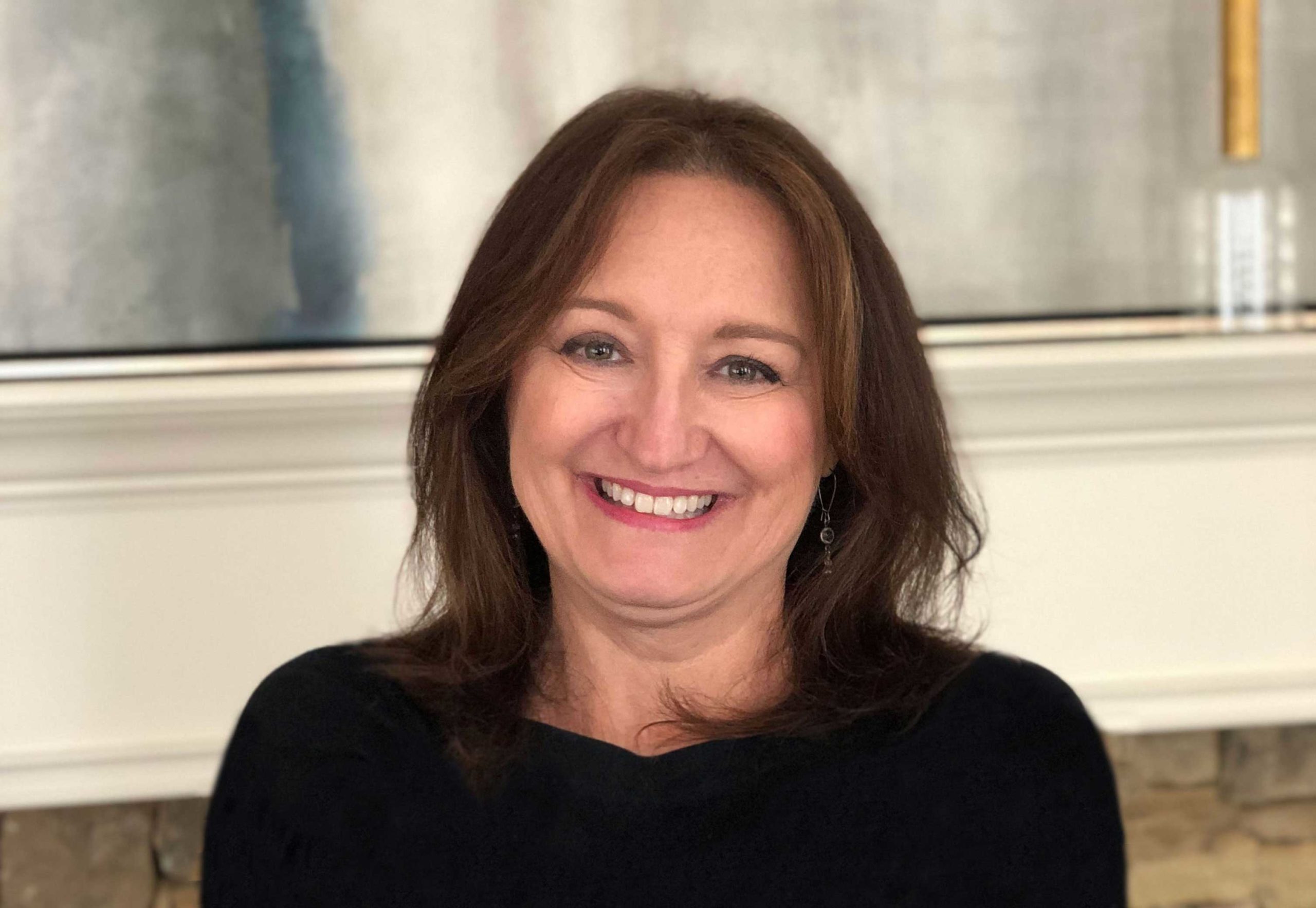
KAREN’S STORY
I work to make marketing an integral part of our revenue engine through brand positioning and awareness, and identifying, segmenting, and connecting with prospects who show buying intent.
I started in advertising fresh out of college in the research department of BBDO New York, one of the biggest ad agencies in the world. It gave me exposure to senior agency executives and the opportunity to work with some of the industry’s best talent. Over the next several years, I moved into account management on a number of national accounts and took on responsibility for new business development.
My biggest obstacle was not in getting ahead, rather that my career just accelerated too fast. I was the agency’s youngest VP at the time, and I was burned out. I suppose I could have taken some time off, but instead I leaned in and decided to pursue my dream of attending law school. At that time, I was living in Los Angeles, and I applied to the only law school that offered evening classes—Loyola. I worked during the day, went to school at night, and studied on weekends and vacations. So much for being burned out! But I found law school invigorating. That’s where I began to hone my strategic skills—using information and knowledge to craft a narrative, thinking about your audience and what would resonate with them.
I worked for a well-known boutique law firm for several years as a trial lawyer. I loved the strategy but discovered that the adversarial nature of litigation wasn’t who I was. I had given law a try, gained tremendous experience that I use every day, and was refreshed and ready to return to advertising.
My former agency boss offered me a job in Atlanta, which led to an opportunity with a sister agency—a boutique strategy and creative shop. From there, I decided to go client-side, leading marketing departments for financial services and experiential education companies. And that led me to MarketSource.
In an ideal world, we would be gender-blind and stop thinking about women separately from men. We need to be on the side of equity, not equality. I’ve been fortunate not to have worked anywhere where being a woman was a deficit. The advertising world is heavily dominated by female leaders, and I was fortunate to have learned from some of the best in the business. I’m grateful that here at MarketSource, we look past gender and see each other as people first.
As women, we can think about our roles in more diverse ways. And today, we’re more open to leading our lives on our own terms. Women tend to think more in more integrated and holistic terms. We tend to see the more human side of things and the implications of our actions, and we bring more nuance to decision-making.
What advice do you have for women early in their careers?
Focus on being excellent at what you do, being a valuable employee, and leading yourself. If you do these things, you’ll be noticed. If you find yourself in an environment where that is a challenge, you can either take up the mantle and fight to make it a better environment, or you can leave and find a place where you can thrive and bring your whole self to work. Be where you can thrive, be true to yourself, be genuine in the way you lead, and find that place where your best is valued.
Your greatest wish for the next generation of female leaders?
I hope gender-based stigmas or limitations disappear, and we get rewarded for honest, hard work. Knowing that you’ll excel for being earnest and diligent is very freeing.
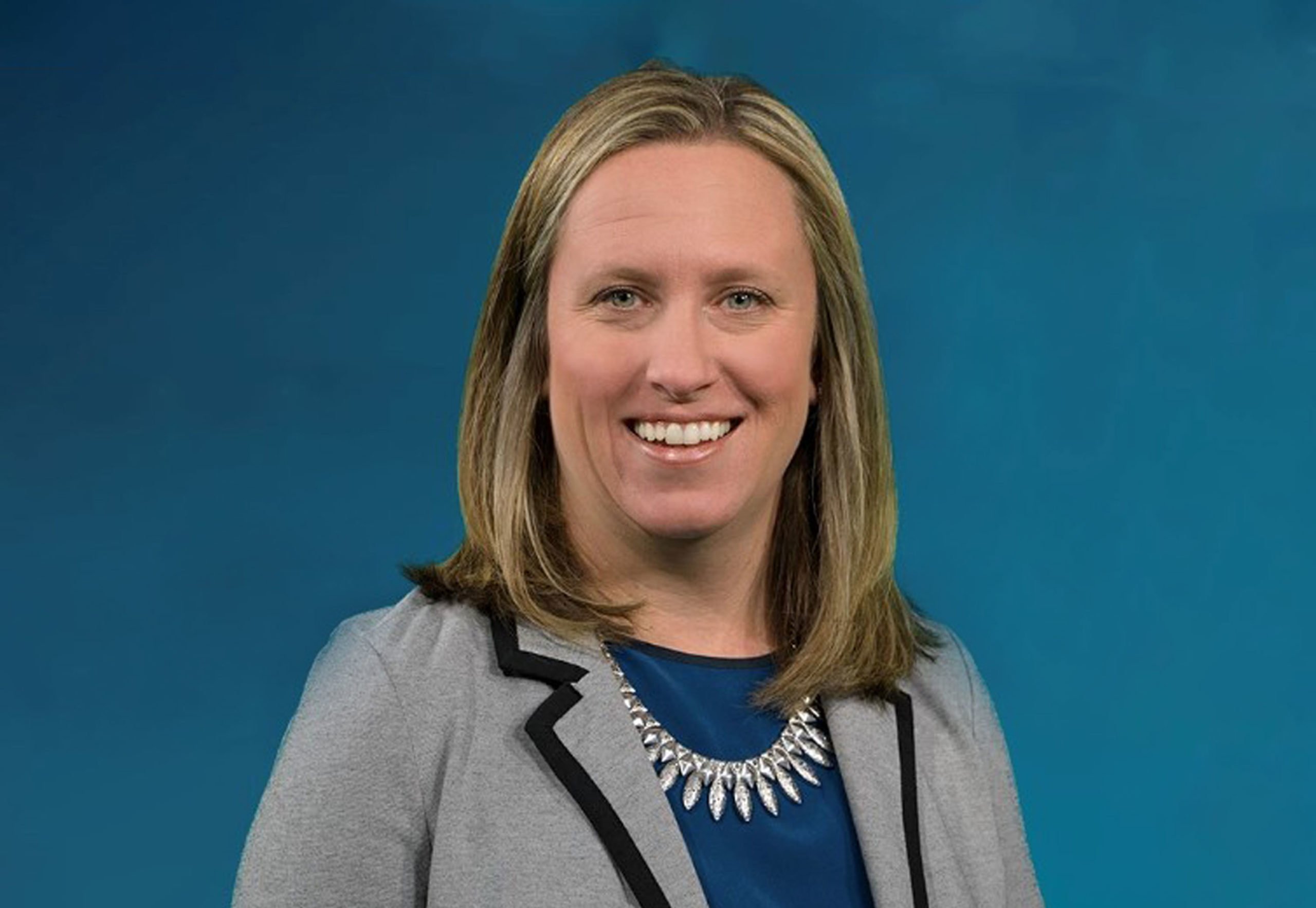
JESSICA’S STORY
I’m the director of financial operations, and I’m responsible for overseeing the financials of the retail business unit. This includes forecasting, budgeting, pricing, and negotiating with our clients. I also co-lead our Women’s Employee Resource Group, whose goal is to drive change and growth by resourcing women with learning and programming outlets and tools. I also hope the ERG can help current leaders—male and female—gain a deep understanding of what aspiring women are looking for to help them grow and lead. I don’t have the answers to those questions, but I’m anxious to discern what those things are, go to bat for them, and create the impactful resources people are looking for.
I’ve been with Allegis Group my entire career. I began with MarketSource sister company TEKsystems right out of college, then joined MarketSource in 2007. As a relationship-based company that takes its core values to heart, I feel committed to the people around me, which makes me want to work harder for them. I stay because I’ve always had a voice here and the space to create and shape the organization. We’re always growing and innovating, and I truly feel the work I do has an impact. Our leadership team genuinely values difference and works to help women succeed.
I’ve been able to thrive in the culture and grow through promotions, but I wouldn’t be where I am today without my mentors. I’ve found the best mentor relationships emerge organically through working with someone or a connection you make rather than through an official program. I’ve also found both parties must lean in to make it work, and mentees must be vulnerable to their struggles and willing to seek help and take ownership of the feedback they receive. It’s good to have a mentor who’s not your supervisor—someone who can be neutral and give you the feedback you need to develop.
I’ve had two mentors. My first—Suzanne—showed me how to work hard while caring for the people who work for you. She taught me that a good mentor offers feedback that helps you grow. She also taught me the value of being intentional about building relationships and partnerships, both with other leaders and your team.
Dana, my second mentor, showed me how to be a true partner to the business, and that doesn’t always mean saying yes and giving others what they want. And she taught me how to ask good questions and to find solutions that are both right for the business and practical and doable. She showed me how to create my own path for growth and development, which is never straight and narrow.
What advice do you have for women early in their careers?
No career journey is easy, and developing yourself and being humble is hard. Really examine what you’re good at. Maybe there’s a role out there that you wouldn’t expect that taps into your strengths. Seek opportunities that align with those. Growing into leadership isn’t about changing the person you are – it’s about giving your potential every opportunity to blossom. Self-reflection is a key part of that process. Take time to look at yourself in the mirror when you receive feedback. Ask yourself, “Am I impacting people the way I want to? If not, what am I willing to change?”
What’s your greatest wish for the next generation of female leaders?
That all women will be confident in themselves. Personal and professional growth are good goals, but I want them to know they have a lot to offer—TODAY—and to not be afraid to share their ideas when they have the opportunity. Women bring a lot to the table and have a different way of looking at things, and when we withhold those gifts, everyone around us loses out.
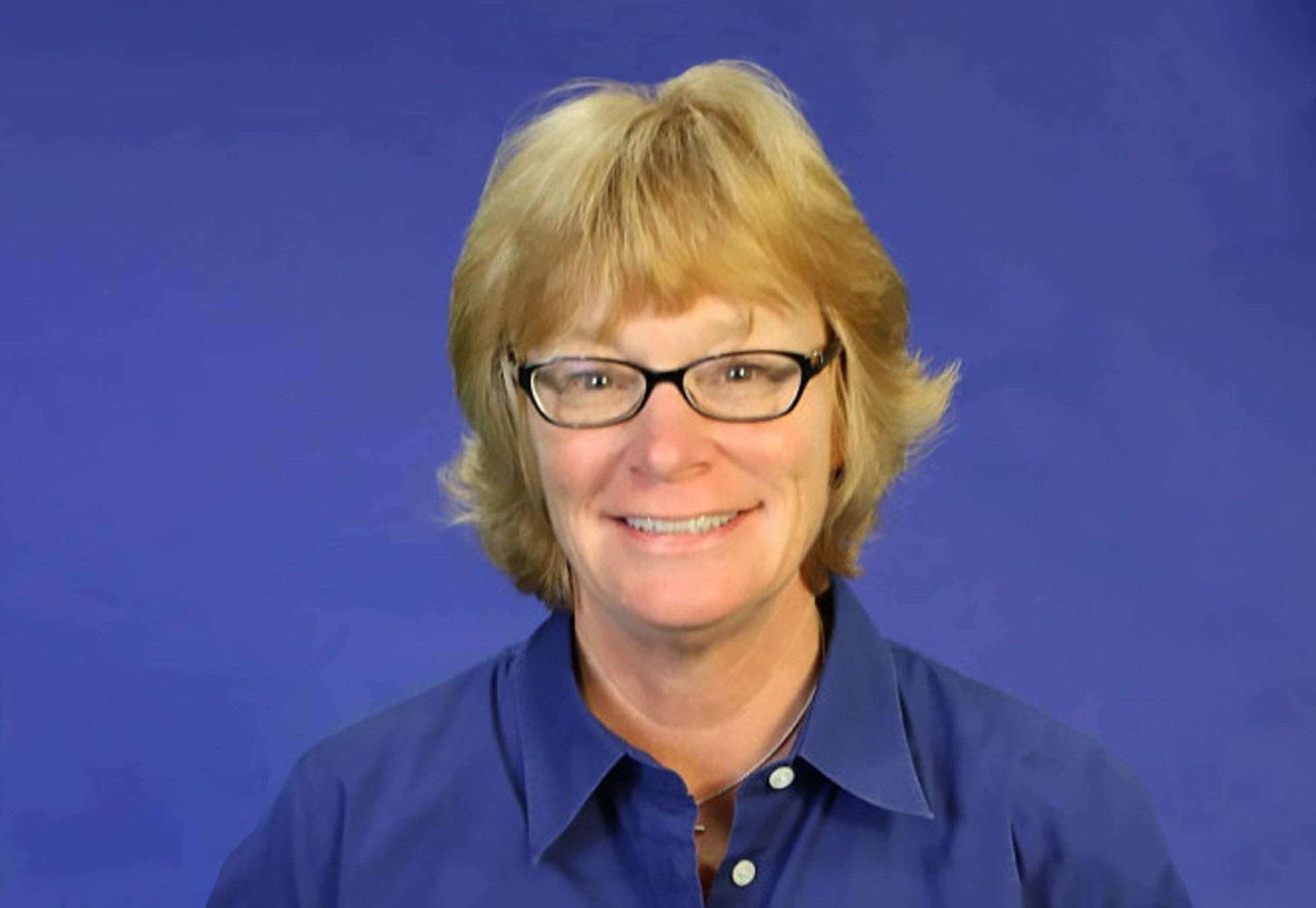
LISA’S STORY
I’m the executive director, automotive solutions. I work closely with the business development, client services, and internal teams who are focused on growing our automotive business. I’ve been at MarketSource for fifteen years and have had various roles, including client services director and practice leader. I’m proud to say that I’ve had the good fortune to have been involved in every automotive program that we’ve ever launched. I really enjoy my work, as I get to collaborate with my colleagues to help our automotive clients achieve their goals! I’ve also been very fortunate to mentor a few people within the company who have gone on to achieve well-deserved leadership roles. It is always exciting to feel that you might have made a small difference in someone’s life professionally and personally.
This is my sixth decade in the automotive industry. I started in sales for a dealership right out of high school then moved onto finance manager. I was taking college classes at night but decided to focus my education on being successful in the auto industry. I went through the GM Women’s Retail Initiative and graduated from the National Automobile Dealers Association (NADA) Academy, which prepares current and future dealership leaders to operate a successful and profitable automotive business through a lens of the latest in industry trends and technology. From there, I went on to own three dealerships with my husband. We eventually sold those, but my experience running them prepared me for my current role. I am very passionate about the retail automotive business and thankful for the wonderful and unique characters I’ve met and worked with through the years. The people and pace are so much fun—it’s intoxicating. You have to be smart and willing to work hard and long hours, but you can stand out as an individual contributor.
The industry was considerably more male-dominated 45 years ago than it is today. In one instance, early in my sales days, a retired couple came to our lot. When I greeted them, the wife told me her husband wouldn’t buy from a woman, so I went to get another salesperson. As hard as that was for me, I was trying to be professional. When he greeted them, the wife told us her husband wouldn’t buy from an African American and asked for our manager, who was a white man. When my manager greeted them, he told them that if they weren’t comfortable buying from either of us, they wouldn’t be buying a car from us. I was proud of him and felt supported, but it wasn’t the last time my being a woman caused problems for other people. As a female salesperson, I was certain that I had to know a lot more about vehicles than my male colleagues because often, male customers would test my knowledge in ways they would not with my male counterparts. That environment has shaped me to be successful, to appreciate the value and importance of always being prepared, and to continually challenge myself to be my personal best.
I’ve grown up in that environment and have gotten so used to it that I hardly notice it anymore. At the same time, we’ve come a long way. My generation has had more opportunities than my parents did. When I was growing up, my mother made me take shorthand, so I’d have a fallback plan as a secretary, but I knew that path was never going to be right for me! I’m thankful that men today are much more supportive of women having careers, that boys see girls as equals, and that dads are encouraging their daughters, helping them to believe that anything is possible!
What advice do you have for women early in their careers?
Don’t be afraid to use your voice and be heard. I read a recent BBC article by Katie Bishop that found that “…women tend to undersell their work, rating their performance 33% lower than their equally performing male colleagues.” I’ve seen this happen, where women are often very tentative about speaking up, even though they have a ton off knowledge and a lot of good things to say. We don’t toot our horns enough and aren’t as comfortable taking appropriate credit for our work as men are. We need to fix that.
What’s your greatest wish for the next generation of female leaders?
Women are excellent at bringing people together, which is essential for success, no matter what business we’re talking about. To that end, my hope for the next generation is for the number of women leaders to continue to grow and for women to be recognized and rewarded for their hard work and efforts in the same ways that men are. I think this is well on its way to happening! Companies run by women are both more empathetic and profitable. I recently read about a Credit Suisse Research Institute report that found “clear evidence that companies with a higher proportion of women in decision-making roles generate higher return on equity and superior sales growth.”
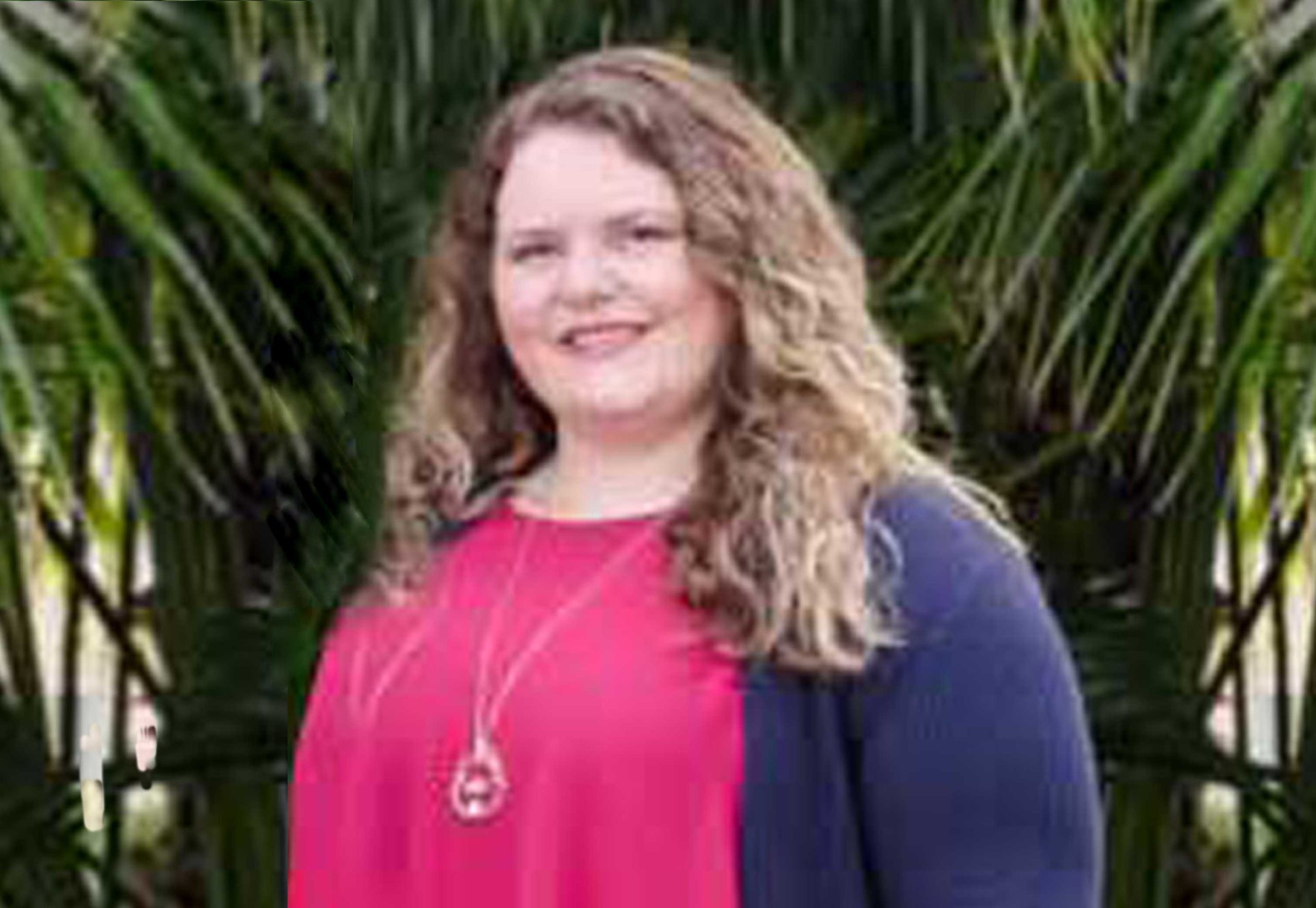
MELISSA’S STORY
I’m the director of employee support, which includes our employee onboarding, payroll, and ongoing support functions. My team maintains the lifecycle of an employee. I started my Allegis career at MarketSource sister company TEKsystems 16 years ago. I transferred to MarketSource in early 2012 as a payroll supervisor and was promoted several times before becoming director in 2021. I was the first director among our operating companies of a payroll team.
I’ve had several mentors and partners who’ve helped push me out of my comfort zone, most of whom were men. My dad always encouraged me to be whoever I wanted and to not to let being a woman be a barrier for me. My husband has always supported my career moves, twice moving out of state for me to pursue opportunities. My leader, Curtis Beckett, has believed in me, supported me, challenged me, every step of the way. I’m grateful for his advocacy.
I am also fortunate to be an alumna of our Women in Leadership (WIL) program, which included a professional mentor, as well as the Allegis Leadership Network (ALN) program, which connected me with a mentor from a sister company. Both experiences helped me grow and partner with different people to gain different perspectives. At MarketSource, I have a voice. I want that voice, because without it, I can’t add value.
A defining moment in my career was when a senior colleague invited me out to lunch and told me he thought I was ready to be a director and wanted to know how he could help me get there. His belief in me and support was key to helping me envision my career advancing to a higher level and removing the barriers I had put in place that were preventing it from happening.
Sometimes, we put obstacles in front of ourselves. For example, when I had my son, I wanted to have it all – to be my best in every role. My leader’s constant support helped me realize I didn’t need to put all that pressure on myself, and that I could set boundaries and still thrive in all my roles. Hearing this took the weight off my shoulders. My direct reports noticed. I became a better leader when I got rid of those unrealistic expectations.
I was never driven by titles. Rather, I want to make a positive impact on people and the organization. I’ve never had an answer to “what’s your five-year plan” because I want to keep growing and learning and stay open to opportunities. That attitude has always opened doors for me. I’ve also been comfortable being vocal about my desires to grow.
What advice do you have for women early in their careers?
Be your own advocate. Ask for what you want, and make sure the people around you know what that is. Advancement can go in any direction—even sideways. Don’t be afraid to forge a path and show others the value of what a new approach might look like. It won’t be easy, and you’ll need a lot of allies and supporters who’ll have your back in the rooms you can’t be in, but it will always be worth it. Be good allies to other women. Be curious. Help people see that you have more than institutional knowledge—that you can be a strategic partner and build something new and different. Leverage what you’re good at, which is different for everyone. That made me comfortable at times when I felt unsure. Use your strengths to break through and earn credibility.
What advice can you offer managers?
Patience and grace are critical. Look for potential, and don’t make assumptions about what women on your team (who may also be mothers) want. Resist biases about female candidates’ gaps in employment, or their lack of a degree. I once hired someone who was seven months pregnant. She was one of my best employees, and I still mentor her.
What’s your greatest hope for the next generation of women leaders?
That we have fewer ceilings and doors to break through because there’s a more equitable environment. I also hope we can make progress and not remain stuck—that future generations don’t have to push so hard for an equitable world the way we still must.
Leading Inclusively Year-Round
Having a diverse leadership team isn’t just good for business. According to Harvard Business Review research, hiring more female leaders is also good for profits. They found venture capital firms that increased their proportion of female partner hires by 10% saw, on average, a 1.5% spike in overall fund returns each year and had 9.7% more profitable exits.
Other benefits of a diverse leadership team include:
- Better decisions
- Fewer blind spots
- Key growth enabler
In its 2022 Women in the Workplace Report, McKinsey and Company says, “[Women] want to work for companies that are prioritizing the cultural changes that are improving work. Companies that rise to the moment will attract and retain the women leaders—which will lead to a better workplace for everyone.”


